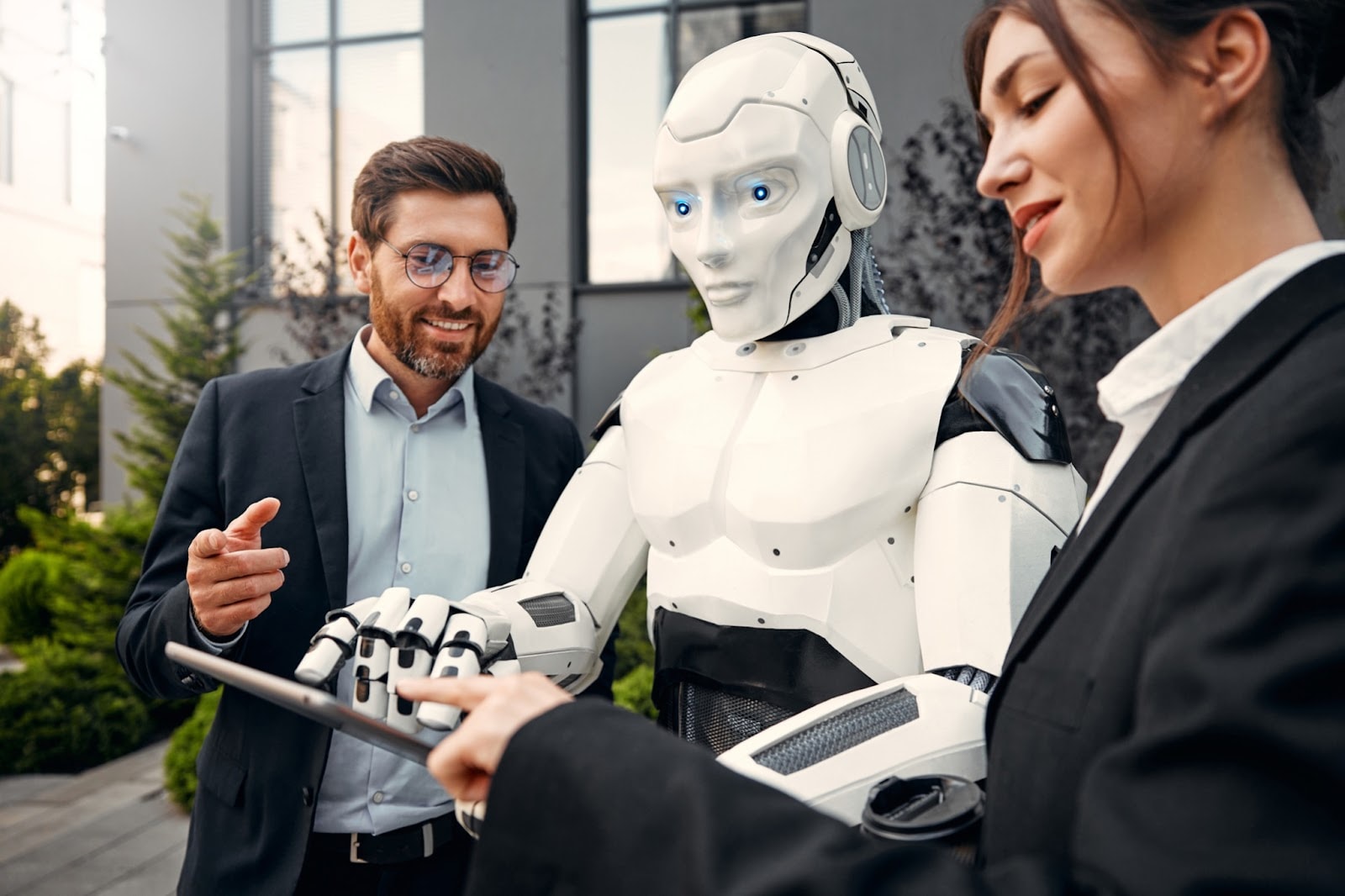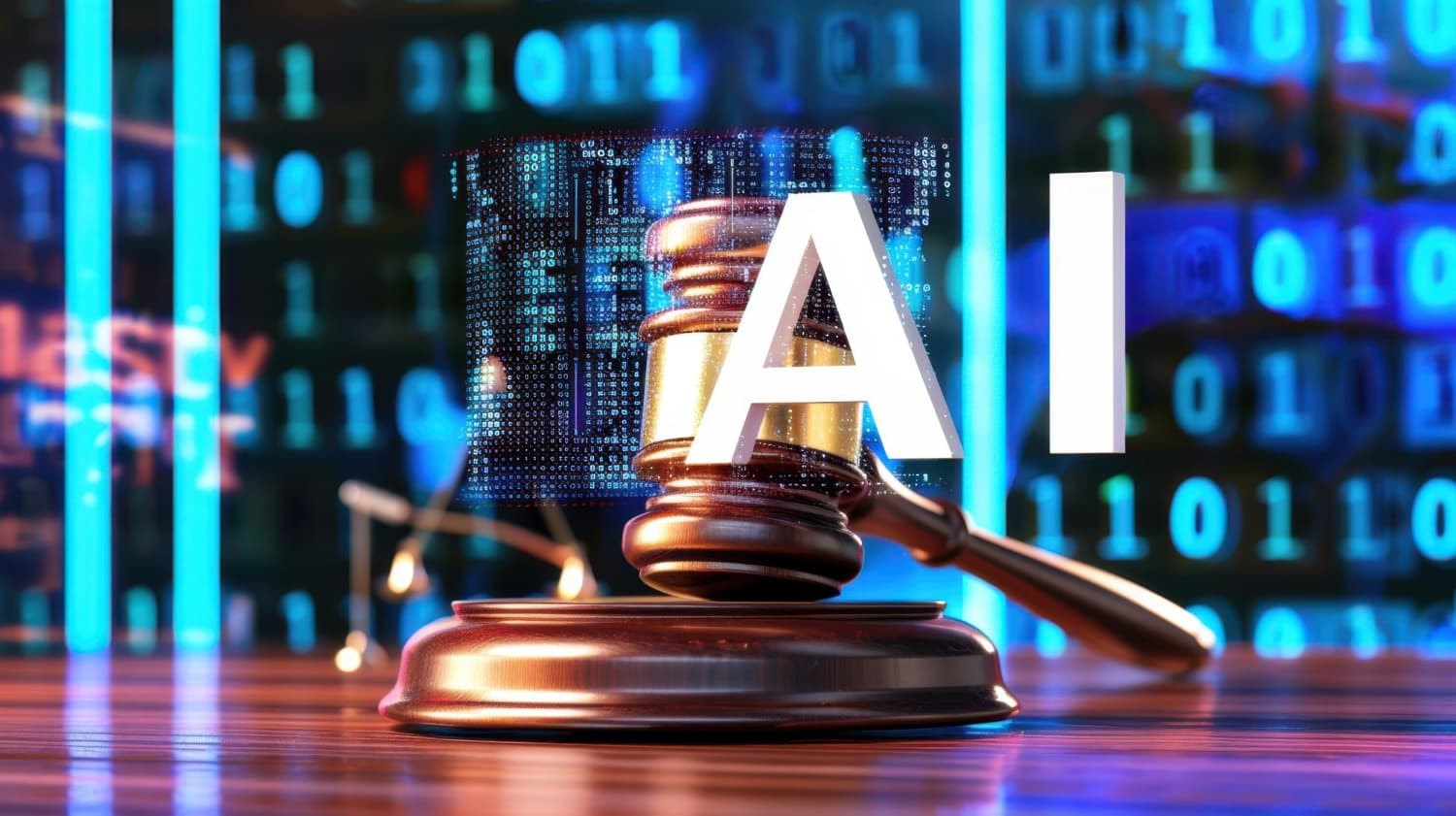What do technology experts predict about AI in 2025?
Many technology experts believe that artificial intelligence (AI) will become so deeply integrated into our daily lives that we may no longer recognize its presence.
2024 marked a major milestone for AI development, but 2025 promises to be even more revolutionary.
If 2024 is seen as the year when businesses start adopting AI, then 2025 could be the year they refine and optimize the technology to better meet their specific needs.
Many experts predict that AI will be so integrated into everyday life that we won't even realize its presence.
"Like the internet or electricity, AI will become an invisible driver of efficiency and success, not just a marketing gimmick," said Tom Begala, co-founder of Bison Ventures, a US venture capital firm focused on cutting-edge technology.

As businesses integrate technology into their operations, they will need to place a greater focus on managing technology responsibly and sustainably.
“By 2025, we expect more and more businesses to realize that investing in AI governance is as important as deploying and applying it,” said Navrina Singh, founder of Credo AI, a platform specializing in AI governance.
Business Insider spoke with leading figures in the tech industry, including innovative startup founders, business leaders, and venture capitalists, to uncover their predictions and visions for how AI will evolve and impact the world in 2025.
Investment in AI will continue to grow strongly
“While the hype cycle around AI may be stabilizing, investments in the space will continue to surge,” said Immad Akhund, CEO of Mercury, a company that provides banking services to startups.
He explained that the long-term interest in AI comes from businesses moving from the experimental stage to practical applications in areas such as customer service, sales and finance. “Companies will leverage AI to improve productivity, especially in administrative tasks and document management, helping small teams scale quickly and operate more efficiently,” he said.

Tomasz Tunguz, founder of Theory Ventures, a venture capital firm, also shared his perspective on the future trends of AI and the technology industry. He said that under the influence of the Trump administration and the change in leadership at the US Federal Trade Commission, new policies could create a more favorable environment for mergers and acquisitions (M&A) and initial public offerings (IPOs) in the AI industry.
“I expect M&A to increase by at least 35% next year,” Tunguz said, noting that the slowdown in acquisitions by the 10 largest software companies is creating pressure for the IPO market to boom, with companies combining AI and software expected to lead the wave.
Competition in AI technology will become more fierce
“At least one large, globally recognized corporation will likely fail or significantly scale back because it cannot compete with pioneering AI startups,” said Stefan Weitz, CEO and co-founder of HumanX, a leading AI conference. “The rapid innovation cycle and widespread adoption of AI will push slow innovators to the brink of obsolescence.”
He warned that the threat from AI will not stop at the industry level, but will spread globally, forcing major powers to regulate the technology to maintain their competitive position. "As we have seen, as the US and China regulate or block core AI technologies, geopolitical conflict over AI algorithms and data becomes inevitable," Weitz said.
He predicts that some countries may choose to ban or even nationalize key AI technologies in order to maintain control over economic and political power.
However, Weitz also stressed that major powers are trying to cooperate to minimize the potential risks that AI could pose to humanity. A typical example was last November, at the Asia-Pacific Economic Cooperation Summit, US President Joe Biden and Chinese President Xi Jinping reached a consensus that humans, not AI, would make decisions regarding the use of nuclear technology.
The line between humans and AI will no longer be clear.
The idea of collaboration between humans and autonomous agents is moving out of the realm of science fiction and closer to reality, creating an urgent need to develop rules to govern the complex interactions between these two entities.
“Synthetic virtual humans, indistinguishable from real humans, will soon enter the workforce, albeit in limited roles,” says Stefan Weitz. “This will spark debates about labor rights and create momentum for the idea of ‘AI citizenship’, which aims to define their roles and limits in society.”

In addition, the distinction between human-generated content and AI-generated content is also expected to become increasingly blurred. Steve Jang, founder and managing partner of Kindred Ventures, an early-stage venture capital firm, shared: "Generative media will become as widespread and talked about as large language models (LLMs) in 2024. Advances in audio and video generative technology will bring better quality, driving adoption not only among consumers but also in businesses."
Highly specialized AI solutions will dominate
Business leaders say the coming year will be a time when AI technology is deeply customized to meet specific needs.
“By 2025, the AI hype cycle will give way to the development of industry-specific, industry-specific AI and robotics solutions,” Begala said. “These products will be faster, more efficient, and deliver clear, immediate value compared to general-purpose solutions. This will be the turning point that marks the true, revolutionary economic impact of AI.”
This trend of customization is also shaping the way we search for information online. AI-powered chatbots are increasingly replacing traditional search engines like Google.
Dominik Mazur, CEO and co-founder of IAsk, an AI search engine, predicts: "By 2025, information search will no longer be tied to a single brand. Users will turn to different platforms to answer specific types of queries, from AI chatbots for conversational answers, to specialized tools for technical knowledge, or visual and voice tools for multimedia queries."
This diversity will create a vibrant competitive environment where specialized solutions coexist alongside general platforms, bringing innovation and more choice to users.
Over the past year, leaders in the AI field have emphasized the value of small, optimized AI models for specific needs over large, platform-based models.
“Instead of scaling based on computing power alone, there is increasing pressure to create smaller, smarter, and more efficient models through data, algorithms, and scientific methods,” said Aidan Gomez, CEO and founder of Cohere, an AI startup.
This reflects a shift away from relying on pure computing power. “The era of using graphics processing units (GPUs) to enhance computation and develop AI models is coming to an end,” Begala added.
Along with that, companies will increasingly adopt custom AI tools, replacing traditional Software as a Service (SaaS) which is expensive and inflexible.
“AI tools are breaking down the SaaS barrier, helping businesses from giants like Amazon to startups ditch expensive SaaS applications that don’t meet their needs and instead opt for lightweight, custom solutions that integrate directly into their own systems,” said David Hsu, founder of Retool, a low-code platform for developers.
Prioritize the development of AI management regulations
As companies take on more responsibilities, they face more risks, so they will start to focus more on regulatory compliance.
“I expect to see more voluntary commitments and actions on the responsible use of AI,” said Navrina Singh, founder of AI governance platform Credo AI. “I believe there will be a strong move to set up barriers similar to what is being discussed for boundary models, which are currently applied to AI agents and autonomous AI.”

“In addition, I envision a future where we see the first penalties for AI violations, which will set a global precedent, forcing businesses to prioritize governance or face serious consequences,” Singh added.
Singh, along with prominent figures in the AI field such as Geoffrey Hinton (father of AI) and Sam Altman (CEO of OpenAI), have expressed support for the creation of an international organization to govern the use of AI.
“We may see the emergence of global AI standards, led by a coalition of nations and businesses, to establish fundamental principles for safety, transparency and accountability in AI systems,” said Ms. Singh.
With the growing cybersecurity threat due to the development of AI, regulation will become extremely important in 2025.
“Deepfake AI technology will make it incredibly easy to create fake identities and documents, creating a crisis of trust for businesses,” said Pat Kinsel, CEO of Proof, a notary software platform. “The ability to differentiate between real and fake identities and ensure safety in digital interactions in the AI era will become the key to business survival.”
Search engine advertising will be highly interactive
Traditionally, users have been able to easily differentiate between sponsored content and organic search results when conducting online searches. However, this year, sponsored content can be seamlessly integrated into chatbot responses.
“AI will disrupt the traditional search advertising model by integrating relevant sponsored content directly into aggregated responses,” said IAsk’s Mazur. “This shift to conversational and contextual advertising will result in a smoother user experience, with ads becoming less intrusive and more relevant to the user’s needs.”
He also noted that the big challenge here is for companies to maintain transparency and build trust, as users realize that their queries can influence platforms' monetization strategies.
AI will not take away human jobs.
What is remarkable is that industry and technology leaders expect that AI will not replace humans, but will support and enhance human careers by 2025.
“We will see increased efficiency across industries due to the automation of repetitive tasks, but humans will still play a significant role in creative work and complex decision-making,” Akhund said. “2025 will be the year when many people will truly adopt AI as an integral part of their work, driving productivity.”
